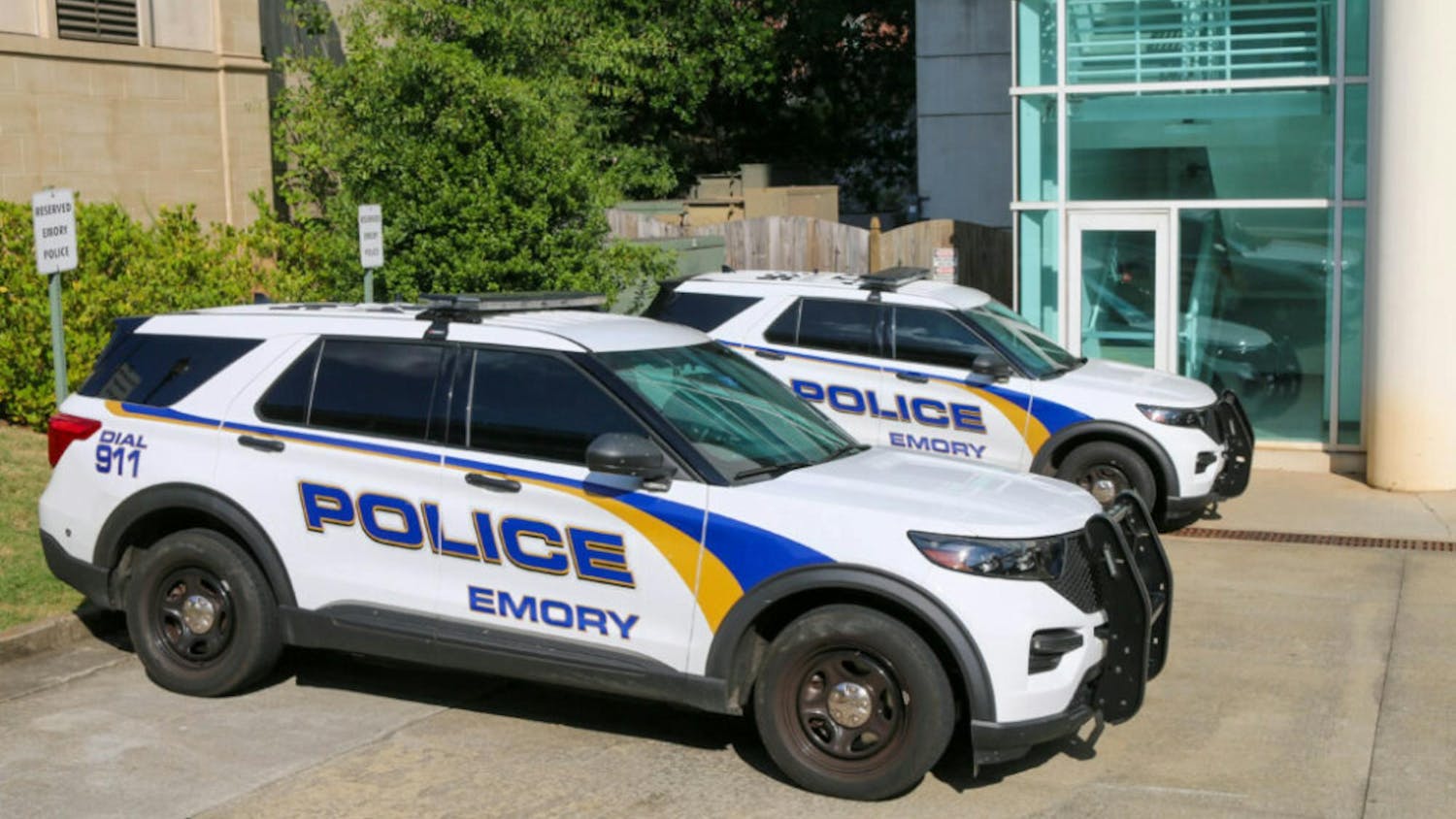Before the operation, she couldn’t see the faces of her two children. Hajjeh, a mother displaced by the civil war in Syria, settled down in a refugee camp to keep her children safe. A year earlier, complications from a cataract surgery left her without vision in her right eye and limited vision in her left eye. Assistant Professor of Ophthalmology at Emory Soroosh Behshad restored Hajjeh’s vision to 20/20 this year and saw her crack an “infectious” smile after the operation.
Last year after a flood of media coverage on the refugee crisis, Behshad and two other Emory professors joined a medical service initiative led by the Syrian American Medical Society (SAMS), an organization that provides crisis-relief treatment for refugees in Syria and neighboring countries.
Behshad began giving lectures August 2016 through Skype video calls to educate Syrian doctors and physicians about common eye conditions. From that point, Behshad traveled to Zaatari, a refugee camp in Jordan with nearly 80,000 Syrian refugees, and operated on over 100 patients with eye disease and used vision screening tests as a preventative measure.
Some refugees that Behshad examined had acute eye injuries due to bomb explosions. To communicate with the patients, SAMS trained more than 20 Arabic-speaking Jordanian college students to carry out simple medical screening procedures.
“Our goal is always … to do training so that that community in the future is not dependent on us but is able to support themselves and provide the care,” Behshad said.
The refugee crisis deserved more than a “like” on a related Facebook post or donation to a charity, Behshad said
“I’m not Arab. I’m not Syrian. I’m not Muslim,” Behshad said. “I don’t really have a connection to that group, per say, but it kept frustrating me because I kept seeing the same situations. … I [needed] to do something. I [couldn’t] just sit here.”
The Emory professor was not alone in his efforts.
After his first visit, Behshad planned to set up a government-certified pediatric eye clinic in Jordan. He contacted Assistant Professor of Ophthalmology Natalie Weil and received permission from Plusoptix, a company based in Georgia, to use preventative medical screening equipment for refugee treatment centers.
“Once the [refugees] are helped, their whole attitude changes and they become more positive. For these refugees having that feeling that [there are] people who are not of the same country, who are traveling to help them, [has] really made them feel good and made them happy,” Behshad said.
Two months ago, Behshad returned to Zaatari for 10 days. During his trip, a machine leased from Plusoptix screened the vision of hundreds of children while Behshad and another ophthalmologist further examined patients that failed the test. The lack of eye screening tests in schools, Behshad said, indicates that eyecare in refugee camps needs to change.
“The machine literally takes 15 seconds as the kid looks at the smiley face, and it scans their eyes and gives you a report of is it normal or not normal,” Behshad said. “It makes it easier and quick to do when you are at a refugee camp with no organized structure.”
Professor of Cardiothoracic Surgery at Emory University School of Medicine Omar Lattouf also joined the medical initiative, applying more than 30 years of experience to complete cardiothoracic surgeries and treat skin-related illnesses. His daughter and Emory alumna Zeena Lattouf (16C), first put Jordan’s undeveloped medical system on her father’s radar. Zeena Lattouf later cofounded the Hope Education Project, which addressed the educational and cultural integration challenges that refugee children and their parents face upon arriving to the United States, according to the organization’s website. Such challenges included a lack of proficiency in the English language and overcoming racial stereotypes of these Syrian refugees. She said her current humanitarian efforts for the refugee community were largely inspired by Zaatari.
Behshad’s long-term goal is to provide glasses to refugee communities.
“I felt like if anything we really need to help these people ensuring that their future generation has vision because they are the ones that will rebuild Syria once the war is over,” Behshad said.
Omar Lattouf, who grew up in Jordan and lived in the capital city of Amman, had never stepped foot inside a refugee camp. He said that he expected Zaatari to be dull and depressing, but was pleasantly surprised by the upbeat attitude and appreciation that the children showed.
“I think that being in that very raw environment put [my father] in a condition to really think about who he is at the core and what exactly stimulates and makes him extremely excited and passionate and focus on this intellectual conundrum of the situation in the refugee camp,” Zeena Lattouf said.
Omar Lattouf’s voice cracked as he described the impact each refugee made on him.
“It was a two-way street,” Omar Lattouf said. “We were helping them heal their wounds and they were helping us heal our souls.”
Read More
Trending









